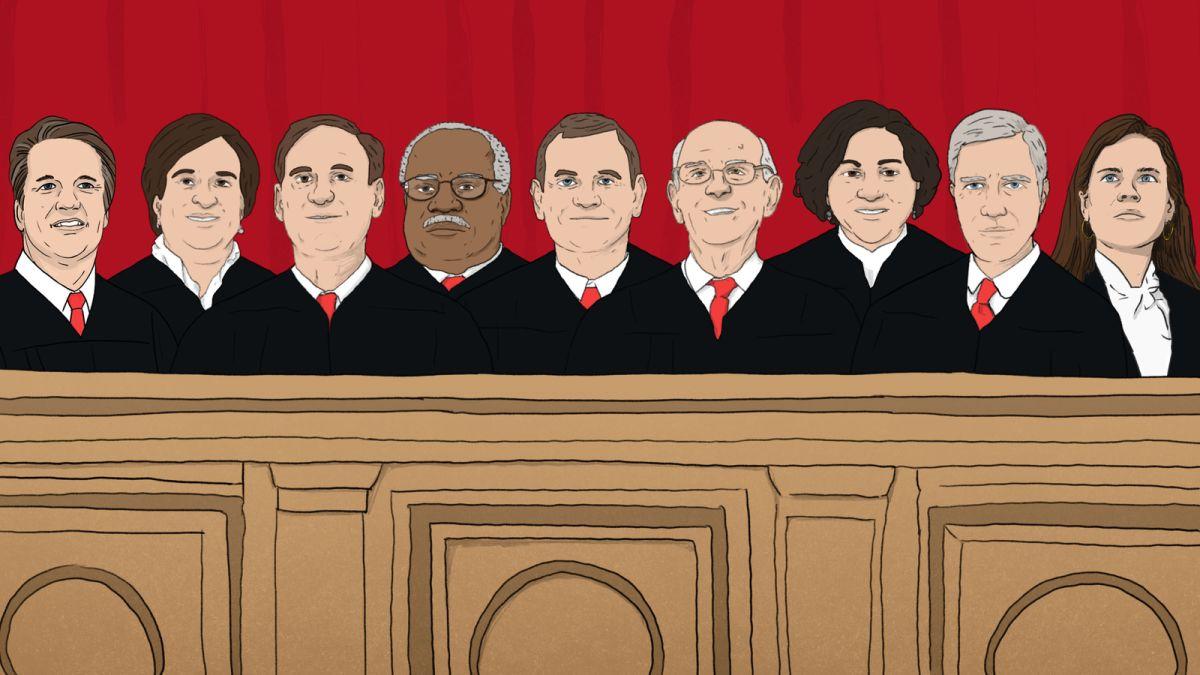By Sophia Pu | Staff Writer

The Founding Fathers intended the justices of the Supreme Court to be politically unbiased. However, with the radicalization of our current political climate, the Supreme Court is no longer the nonpartisan third branch of the United States government and must be reformed.
The Constitution states that the President nominates Supreme Court judges and the Senate must approve them. Unfortunately, recent presidents and senators have manipulated the process to ensure that only justices who agree with their political values are appointed.
For example, when Ruth Bader Ginsburg, an openly liberal Supreme Court justice, died in 2020, former President Donald Trump and the Republican-majority Senate rushed to replace her with a conservative judge one month before the presidential election. However, when Antonin Scalia, a conservative justice, died in 2016, Republicans in the Senate refused to give former President Barack Obama’s nominee a vote at all, despite Obama having a year left in his presidency.
“The problem right now is that every time there’s a vacancy on the Supreme Court, it’s an all out war […] to get the person confirmed,” explained Katie O’Connor, Deputy Chief Counsel for the organization Demand Justice.
We must end the partisanship in the judicial nomination process. A commission of expert, non-biased individuals should be established to vet candidates based on qualification, not partisan allegiance. The commission must be representative of the makeup of America, composed of a diverse group of people from all political parties.
The commissioners should have to approve the list unanimously, ruling out any extreme candidates. Per the Constitution, the president would still nominate from the commission’s list and the senate would still approve them.
Once the justices are seated, their behavior must also be reformed. The most logical way to do this is to require the justices to comply with the same Guide to Judiciary Policy as all federal judges do.
This includes following a Code of Conduct, disclosing their personal finances, and recusing themselves from a case when they have a conflict of interest. Currently, the justices are not required to do any of these things. So, there is no system to hold Supreme Court justices accountable.
For example, during Justice Brett Kavanaugh’s confirmation hearings, there were 83 ethics complaints made against him. But, because there is no way to investigate Supreme Court justices, all complaints were dismissed.
Congress should pass a law requiring the Supreme Court to abide by the Code of Conduct. If justices break the code, then the same panel of judges that evaluate lower court judges should hold the offender fully accountable.
“They’re our representatives, interpreting the laws and Constitution of the country,” stated Gabe Roth, executive director of Fix the Courts. “We pay their salaries with taxpayer money, and we have the right to know as much as we can about […] the people who make up that institution.”
Judges on the Supreme Court are supposed to apply the law without prejudice, based on what is Constitutionally right. At a time when it is impossible to get political parties to agree, it is critical for those who interpret federal law to remain impartial. And, this cannot be achieved without reforming the way that the Supreme Court is selected.






